On July 14 last year, a delegation of students and job seekers submitted a memorandum to the President of Bangladesh, urging swift action on their one-point demand for reforming the quota system in public sector recruitment.
The 12-member delegation entered the President’s official residence, Bangabhaban, at around 2:35 PM and handed the memorandum to the President’s military secretary.
In the memorandum, students demanded the immediate convening of a parliamentary session within 24 hours to pass a law reducing the quota in government jobs to 5%, reserved only for underprivileged groups.
They also proposed an alternative solution of issuing an executive order if a parliamentary session wasn’t feasible.
Despite heavy police barricades along the route to Bangabhaban, hundreds of students from Dhaka University, Jagannath University, Eden College, Dhaka College, and Begum Badrunnesa Government Girls` College marched toward the President’s residence. Police blocked them at Gulistan intersection, allowing only the 12-member delegation to proceed.
After submitting the memorandum, Nahid Islam, a coordinator of the quota reform movement, reiterated the 24-hour ultimatum for visible government action. He also demanded the withdrawal of a police case filed against demonstrators, extending the deadline by an additional 24 hours. “Failure to withdraw the case will result in intensified protests,” he warned.
Simultaneously, students across the country submitted similar memorandums to their respective Deputy Commissioners. Universities involved included Chattogram University, Bangladesh Agricultural University, Cumilla University, Islamic University in Kushtia, Pabna University of Science and Technology, Begum Rokeya University, and several other institutions. District-level protests and human chains were also held in Jhenaidah, Natore, Durgapur (Netrokona), Tangail, and Chilmari (Kurigram).
At Jahangirnagar University, students brought out a protest procession and held a rally adjacent to the Dhaka–Aricha Highway, forming a human chain to support the demand for quota reform.
Later that day, former Prime Minister Sheikh Hasina held a press conference at her official residence, Ganabhaban. She dismissed the students’ demands, stating that she lacked the authority to intervene in the matter and that it would be settled by the court. When asked about quota benefits for descendants of freedom fighters, she controversially remarked, “If freedom fighters’ grandchildren are denied quota benefits, should Razakars’ grandchildren receive them instead?”
Her statement sparked nationwide outrage, especially among students, as “Razakar” is a deeply derogatory term in Bangladesh, referring to collaborators of Pakistan during the 1971 Liberation War.
Following the Prime Minister’s comments, students at Dhaka University launched late-night protests on campus. Around midnight, hundreds gathered at the TSC area with processions, joined by female students from several halls. They chanted slogans such as “We asked for rights, they called us Razakars” and “Quota or merit? Merit, merit!”
Despite efforts by Chhatra League activists to block students from leaving residential halls, large numbers still joined the protests. The demonstration continued until 1:30 AM.
On the same day, the full 27-page High Court verdict upholding the existing quota system in government jobs was published on the Supreme Court`s website. The verdict noted that the government has the authority to amend the system if it chooses.
In response to the ultimatum for case withdrawal, then Home Minister Asaduzzaman Khan Kamal said that students were protesting without understanding the full context and claimed that “instigators” were fueling the movement. He asserted that legal actions were taken on merit.
Liberation War Affairs Minister AKM Mozammel Haque said the Cabinet would discuss the quota issue and make a decision. Meanwhile, Awami League General Secretary Obaidul Quader alleged that BNP and its allies were attempting to hijack the reform movement for political purposes.
That night, reports emerged that Chhatra League members attacked protesting students at Chattogram University. Additionally, three Chhatra League leaders announced their resignations via Facebook, distancing themselves from the organization amid the unfolding crisis.
The July 14 events marked a turning point in the nationwide quota reform movement, showcasing the students` unity and the mounting pressure on the government to reconsider its stance.


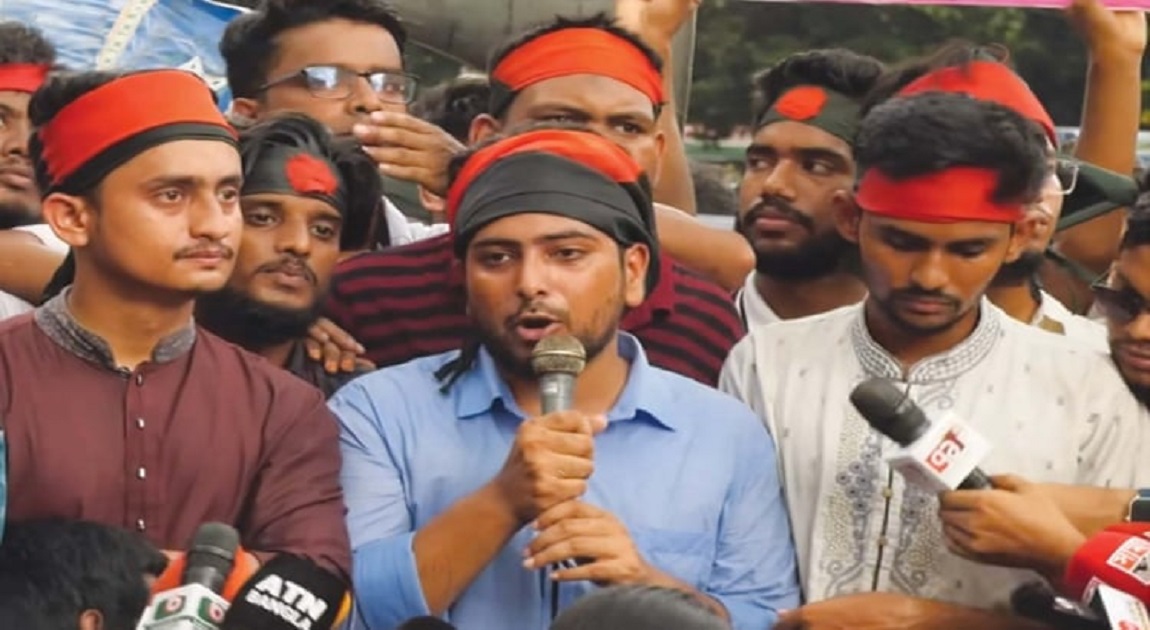

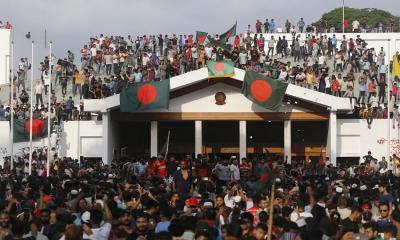
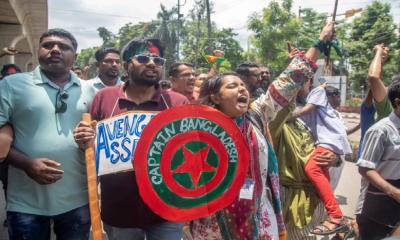
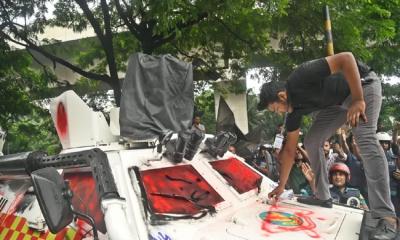
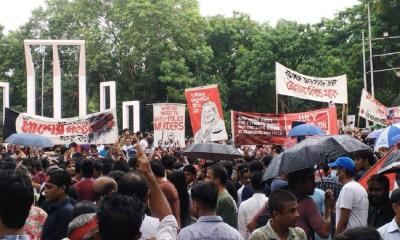
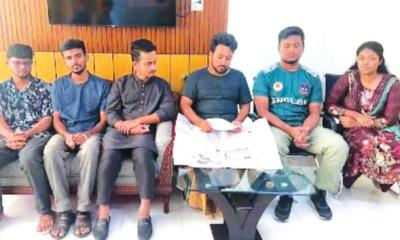
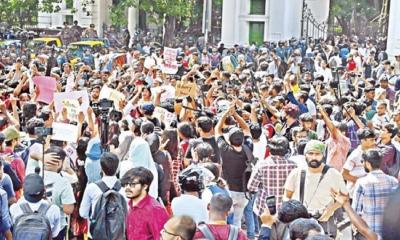




-20260226080139.webp)






-20260225072312.webp)










-20260219054530.webp)
-20260224075258.webp)





-20260221022827.webp)